Preparing for retirement is an important, ongoing process that requires meticulous planning and a proactive mindset. Whether you’re at the beginning of your career or nearing retirement age, it is helpful to take actions now that will bolster your retirement readiness for the future. Through prudent decision-making and the implementation of effective strategies, you can pave the way for a more enjoyable, worry-free, and financially secure retirement phase of life. We’ll discuss six such strategies below.
Retirement Readiness Strategy #1. Formulate a Robust Financial Plan
A well-constructed financial plan is an important ingredient in overall retirement readiness. To begin, assess your current financial situation, considering all of your income, expenses, assets, and debts. A comprehensive financial plan should encompass various elements, including budgeting, investment strategies, debt management, risk management, and estate planning. If you’re struggling on where to start, it may be beneficial to seek advice from a financial advisor. An advisor can help you set realistic retirement goals and create a tailored plan to achieve them.
Additionally, remember to regularly review and update your financial plan to adapt to changing circumstances. Life events such as job changes, marriage, the birth of a child, or purchasing a home may necessitate adjustments to your plan. By actively managing your finances and having a clear roadmap, you can make informed decisions that align with your retirement goals.
Retirement Readiness Strategy #2. Begin Saving as Early as Possible
Beginning to save as early as possible is one of the most effective means to bolster your retirement preparedness. By initiating savings early, you’re allowing your investments to grow over time, maximizing the overall potential of your money. Focus early in your life on building up an emergency savings fund to cover at least 6-12 months of living expenses and set up a savings plan to save for more expensive purchases such as a home, college expenses, etc.
We also recommend establishing a retirement savings account, such as a 401(k), individual retirement account (IRA), or employer-sponsored plan, and consistently allocating a portion of your income toward your savings.
SEE ALSO: The Disadvantages of DIY Financial Planning
Retirement Readiness Strategy #3. Maximize Your Retirement Contributions
If you want to fully capitalize on your retirement savings opportunities, it is vital to maximize your contributions. If your employer offers a 401(k) plan with matching contributions, aim to contribute at least enough to receive the full employer match. This represents free money that can substantially boost your retirement savings Individuals aged 50 or older can take advantage of catch-up contributions, which enable additional funds to be contributed to retirement accounts. This further enhances the potential for savings.
If possible, also aim to contribute the maximum allowable amount to your IRAs or Roth IRAs each year. These accounts provide tax advantages, allowing for either tax-deferred or tax-free growth, depending on the account type. When strategized properly, this can help you manage your tax burden in retirement. Since the contribution limits for retirement accounts may vary annually, be sure to stay updated.
Also, consider maximizing contributions to Health Savings Accounts (HSA) if you have also signed up for a High Deductible Health Plan. An HSA account allows you to build additional savings to support future out-of-pocket healthcare expenses that also benefit from tax-deductible contributions and tax-deferred growth. By starting early and maximizing contributions, you can make significant progress toward a secure retirement.
Retirement Readiness Strategy #4. Embrace Investment Diversification
Making wise investment choices is crucial for building a strong portfolio that will sustain you during retirement. A key principle is diversification, which means spreading your investments across different asset classes, including stocks, bonds, real estate, and possibly alternative investments. Diversification not only mitigates the risk of substantial losses but also provides opportunities for growth.
You’ll want to keep factors such as your risk tolerance and investment time horizon at the forefront of your mind when determining your asset allocation. Generally speaking, younger investors can afford to take more risks and allocate a higher percentage of their investment portfolio to stocks because they have more time to bounce back from market volatility However, as retirement approaches, investors often make a gradual shift toward more conservative investments to preserve capital.
Retirement Strategy #5: Pay attention to the tax impact of financial decisions
In order to maximize after-tax returns, pay attention to asset location by holding tax-inefficient assets in retirement accounts and tax-efficient assets within your taxable accounts. Review your accounts periodically for opportunities to perform tax loss harvesting. Also, pay attention to the tax impact of selling investments in one year Vs. another and consider tax-wise charitable giving strategies if you are charitably inclined. Doing so will allow you to support your favorite causes while helping to further reduce your annual income tax liabilities. In lower-income years, look for opportunities to perform ROTH conversions which will allow you to build up a tax-free bucket of investments that can help you manage your tax liabilities during your retirement years. A financial advisor can help you determine which strategies will be the most beneficial for your situation.
Retirement Readiness Strategy #6. Foster a Lifelong Learning Mindset
Retirement planning is a life-long journey that requires consistent flexibility as your financial landscape changes and shifts with new phases of life, changes in the law, market trends, technology updates, and more. Take the initiative to continuously educate yourself on key financial topics such as investment options, tax regulations, Social Security, Medicare, healthcare costs, and other factors that could impact your retirement plans. More knowledge and experience can enhance your retirement readiness.
SEE ALSO: These Cognitive Biases Could Sabotage Your Financial Planning
Luckily, you can find an abundance of affordable resources (such as books, magazines, financial websites, etc.) right at your fingertips to help you improve your financial literacy.
Whatever you choose to explore, what’s important is that you’re staying knowledgeable about the topics that pertain to you so that you can adapt your retirement plan accordingly and make any necessary strategic adjustments. The more educated you are, the more empowered you’ll feel to make the correct financial decisions for your future.
Elevating Your Retirement Readiness for More Security and Peace of Mind
If you’d like to prioritize your retirement readiness, approach retirement planning with a proactive mindset and a steadfast commitment to your long-term financial well-being. Retirement planning isn’t a “set it and forget it” exercise. Rather, it’s an ongoing process. While tips like the ones above can help improve your retirement readiness, remember that your financial situation is unique. It’s important to evaluate your personal circumstances and seek guidance from professionals when you need help customizing a retirement plan that aligns with your goals and aspirations.
If you’d like assistance with developing a financial plan that prioritizes retirement readiness, we can help. At Wade Financial Advisory, our team of experienced advisors can work with you to develop a comprehensive retirement strategy tailored to your unique circumstances. Contact us today to schedule a consultation. We look forward to hearing from you!










